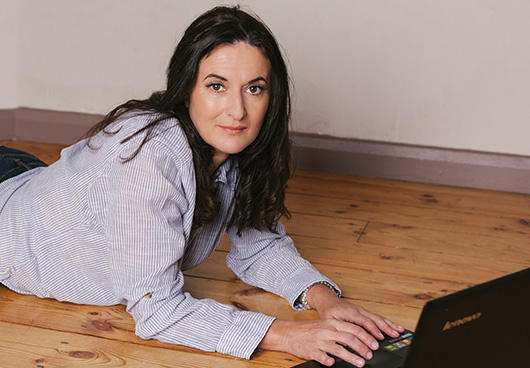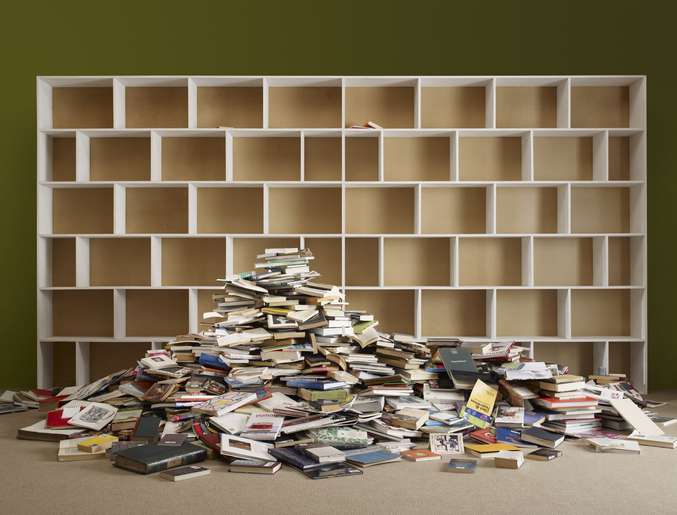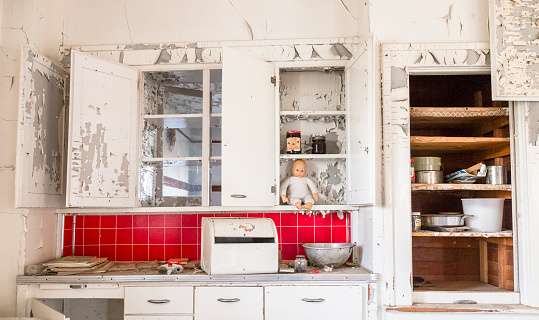In the course of this job I’ve dealt with dozens of real estate agents over the years. Pretty sure none of them gave their clients this top tip before an open home:
“Get Pharrell's Happy going on repeat and dancing around the kitchen before your 'guests' arrive. Seriously, that song works like magic!”
But English woman Suzanne Roynon, an interiors therapist - think Marie Kondo, but with an overlay of Feng Shui, energy work and life coaching - is serious.
“The energy of a property is dependent on the people and possessions. When you get the right balance of positive, welcoming vibes combined with a look and feel buyers yearn for, it’s irresistible,” she says.
Start your property search
“I’ve learned that if I clung to stuff in my head or home which held me in the past or reminded me of negative situations, nothing I did would make a difference. When I cleared them, good things happened – sometimes very rapidly!”
Roynon practiced her Ready to Sell programme on herself and now coaches clients who are putting their home on the market (she also coaches people needing other help in their homes, and lives).
READ MORE: Does your home repel the opposite sex?
After a milestone birthday and ending a marriage, she sold her house in six days, well above the asking price. She found clearing her house helped make space for new work and travel opportunities, a lesson she’s now sharing with clients as far away as Australia, United States and South Africa (and New Zealand, she’d like, she’s packing her bags already).

Interiors therapist Suzanne Roynon. Photo / clutterfree.coach
Roynon is careful to differentiate what she does from the house staging we know in New Zealand, where a truckload of tasteful furniture and art is styled into a house. While she shares standard and very wise advice - de-personalise, de-clutter, deep clean and present the house in a way which will appeal to the likely purchaser - she urges vendors to take the opportunity to really assess how the house, and things in it, makes them feel (happy/sad/depressed) and assess whether they love, need or use it.
“Moving to a new place is a great motivator to shrug off the things holding us back,” she says. “The other aspect which is often forgotten is the energy of a house. Stay with me here!
“We’ve all experienced places which make us feel tense or uncomfortable - you know, like that moment you arrive at dinner party and realise the hosts have just had a massive row.

Too many books on the books shelves will convince people your house doesn't have storage space. Photo / Getty Images
“If walking into your home feels sad or like ‘cutting the air with a knife’, that’s going to deter buyers. They won’t realise it’s the energy of you and your possessions, the house simply won’t ‘feel right’ to them and they will go elsewhere.”
Roynon isn’t one for checklists, preferring to walk through a house and pick up on what the house is telling her. While she’s hands-on to a certain extent, her therapist/facilitator role sees her empowering people to take responsibility for themselves as they work through their house. Often she’s called in after a house has sat on the market for a while, so goes in to refresh.
She’ll often work with the whole family, young children and teens included, as they are usually not thrilled that parents are selling their precious house from under them. That may include getting the kids excited about their new move and helping them detach from their old life.
“Teens find it most difficult to up sticks, we often need to redecorate their space,” she says. “Changing their environment, changes the energy they live in, it lifts them as well.”

Don't forget to clean! Photo / Getty Images
She insists that if you’re living in a property while it’s being marketed, work on the family’s attitude to the house before potential buyers step through the door.
“If you and your family treat it with respect, almost as though it already belongs to someone else, viewers will too,” she observes. “Almost regard the property as a show home and viewers as your guests. That way it’s easier to see the benefits of clean surfaces and sparkling mirrors and empower all family members to clear up after themselves.”
Suzanne’s Ready to Sell Top Tips
1. Gather all of the decorative items into one place. Reduce the number of family photos on display to a couple per subject, cut collections to one or two items and put the rest away. Select aspirational items to show the house at its best and re-position them.
2. Look at any art on the walls – what does this say about you or your home? How would it make someone else feel?
3. Ensure cupboards are neat and tidy. Fold towels and linen so people can see the amazing storage capacity of your property. Clear any junk rooms and show them as useful space.
4. Bring fresh flowers in a colour which works with your décor or play safe with white. There’s a special energy around fresh flowers and plants in bloom.
5. Invest the whole family in the preparing and selling process. If they understand why it matters, they are more likely to see the benefits and work with you to make it happen.
And Her Top Five No-nos
1. Pungent smells, whether from food, pets or anything else. Stinks and whiffs are a turn-off when viewing a property. Open the windows, even if it’s the middle of winter, and freshen up the air.
2. Grubby cupboards, inside or out – especially in the kitchen and bathroom. Empty them, pare down the contents, give them a good clean and put back only the items you know you will be using. Keep kitchen surfaces as clear as you can.
3. Rammed shelves give the impression the house is short on space, deterring a buyer. Cull the shelves so they are tidy and manageable. Pack away things you can’t live without and dispose of anything which isn’t part of your future.
4. Too much furniture can make a house look smaller than it really is. If you can’t let something go, store it elsewhere until after you move.
5. Tidy away personal paperwork, especially bank statements, legal letters and precious items. Those are no one else’s business.


